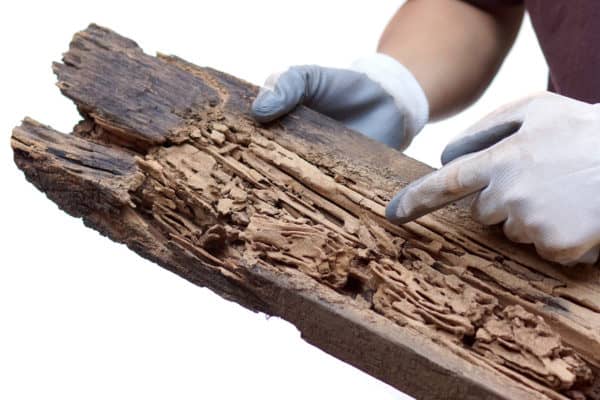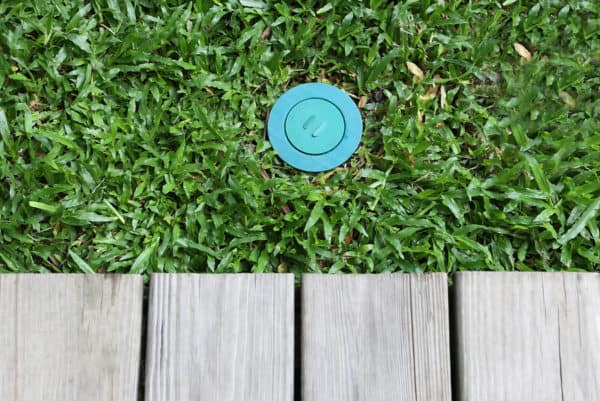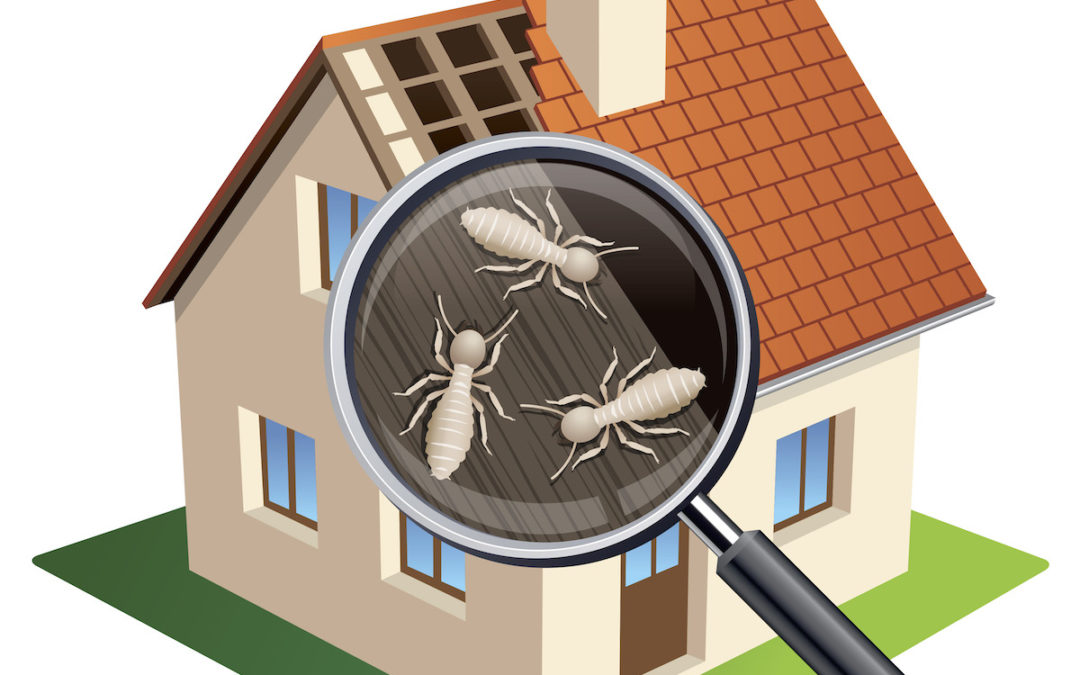READY TO GET STARTED?
REQUEST A FREE ESTIMATE
Fill out the form below or call (888) 466-7849 for a free, no-obligation estimate.

Termites cause billions of dollars in damage each year. There are two main types of termites: drywood termites and subterranean termites. Drywood termites are found in warm, southern climates. They establish their colonies deep within the wood that they eat. As they consume wood, they create mazes of tunnels and chambers within the walls and foundation of your home. Subterranean termites are found throughout the continental United States. These termites build their colonies underground and emerge in search of food. They can enter your home through cracked or unsealed foundations.
Because termites eat wood from the inside out, termite damage often goes undetected for long periods of time. Often in fact, by the time signs of termites appear, colonies are well established and significant damage has already been done. Because of this, it is recommended that you get a termite inspection at least once per year or any time you find signs of termite activity. The average termite inspection cost is usually free (if no termite report is required, as in the case of a real estate transaction), or can be anywhere from $45 to over $100 depending on the size of your home and the exterminating company hired. A licensed termite inspector will perform a visible inspection on the readily accessible areas of your home looking for evidence of termites. The inspection should include a visual inspection of the entire interior of the home (including crawlspace and basement) and the exterior of the property. If evidence of termites are found, a termite exterminator will be required to provide appropriate termite control options and treatment.
Spotting signs of termites is a good indicator that a well established colony is nearby. But what are these signs? What should you look for? Here are 6 common signs of termites:
If you suspect you have a termite problem or if you spot signs of a termite infestation, contact a professional termite control company who can provide you with a thorough termite inspection and a comprehensive termite protection and treatment plan.
Summer Wildlife Removal: Common Home Invaders
What Are These Little Black Ants?

Termites can be a homeowner’s worst nightmare. Termites do their damage from the inside out and they often aren’t detected until after significant destruction has already been done. The signs of termites are often difficult to find until colonies are well established. In fact, termites cause an estimated $5 billion in damages each year in the United States. Yet many people still question if termite protection is worth the cost.
Structural damage caused by termites is the most expensive with an average cost of $3,000 for repairs. This amount varies depending on the extent and location of the damage that is caused. In addition to the structural damage caused by termites, cosmetic damage can also require repairs, costing an estimated $2,000 to fix things like discolored sheetrock, buckled floors, and peeling paint. This amount also varies depending on the materials that were damaged and the materials used to repair or replace it.
Termites must be exterminated before any repairs are done. The cost of a termite treatment not only include the termiticides or baits used in the treatment, but also the labor, training, and service hours for the termite exterminator. The average cost of termite control is $4 to $7 per linear square foot of your home. This estimate also varies based on the type of termite warranty provided, the location of your home, and the type of treatment required.
Unfortunately, most homeowner’s insurance policies do not cover termite damage and sellers are usually responsible for covering termite damage during the sale of a home. This can vary so it is always a good idea to check your state regulations. This also usually includes a termite inspection prior to the sale of the home.
Knowing the potential costs of termite damage and repair is reason enough to invest in termite protection. What options do homeowners have when a homeowner’s policy doesn’t cover termite damage? A termite bond or termite warranty is your best bet. A termite bond is a warranty between a homeowner and a termite company that functions as a maintenance contract for termite prevention, damage, and repair. Termite warranties vary by company, but they generally include an agreement for annual (or more often) termite inspections during the lifetime of the warranty, an agreement to provide treatment if termites are discovered (often at no additional charge to the homeowner), and in some cases an agreement to repair damages. Not all homes, however, qualify for these repair bonds so always check with your termite control provider about this.
A termite warranty provides you with peace of mind against termite damage. The warranty guarantees that the pest control company will continuously inspect your home and make sure that new infestations are discovered before they can proliferate. Termite warranties are also beneficial when buying or selling a home as they are often required before a sale can occur. Lenders will often not approve mortgages for at-risk homes without a termite bond. Only certified pest control companies can issue termite warranties. Yearly costs typically run $300-$400 for the warranty coverage, which includes the annual termite inspection.
Click here to schedule a free termite inspection.
What is the Difference Between Traditional and Green Pest Control?

The 2 most common reasons to need a termite inspection: when required during real estate transactions and if termite activity is present or suspected by homeowners and business owners.
If either of these situations applies, you may be wondering how much a termite inspection costs, and what steps are taken if an infestation is found by a termite exterminator.
If you own a home or business and see signs of active termites (usually swarming termites) or termite damage, you’re going to need a termite inspection from a local exterminator near you. Or if you’re considering selling your home in the near future and don’t have a termite warranty, now may be a good time for a termite inspection, so you don’t delay the sales process when you find a potential buyer.
If the intent is to get termite treatment options and find out if you have an active termite infestation, most termite exterminators will perform a free termite inspection. The first step in this process is to contact a reputable pest control company and schedule a termite inspection. On the day of inspection, be prepared for the inspector to spend a half hour to an hour or longer at your property, depending on the size and condition of the home or business. The inspector will be looking for active and previous signs of termites, termite damage, and any other wood destroying insects or pest issues.
If termite activity is found, previous or active, termite treatment options will be provided. Common forms of treatments include liquid barrier treatments and termite baiting systems, which are a less invasive, environmentally responsible option. Most exterminating companies will also offer termite warranties with treatment so that your property is protected from future termite infestations and/or damage.
If no termite activity is found, it’s still a smart choice to consider having your home or business treated for termites. A baiting system like Sentricon Always Active® is a great preventative treatment choice. Termites cause billions of dollars in structural damage each year so taking a proactive approach to termite protection is the only way to totally protect your investment from termites.
Termite inspections and Wood Infestation Reports are usually required during the purchase of a home. These are NOT included in a general home inspection. Often, the real estate agent representing the seller will coordinate the termite inspection with their exterminating company of choice, if the homeowners do not currently have an active termite warranty. The fee for this inspection and report generally ranges from $45 to over $100 depending on the termite company. This fee is sometimes waived if active or previous termite activity is found and the property will require a termite treatment.
Termite Treatment Options: How Sentricon Works
Termite Control: Do I Really Need Termite Protection
What Are Your Termite Treatment Options?
Green Pest Control: Is it Worth the Investment?
What to Look for When Choosing an Exterminator